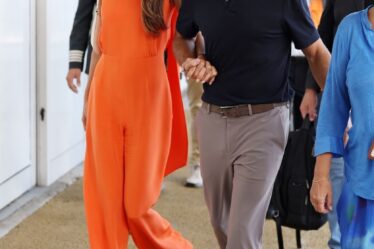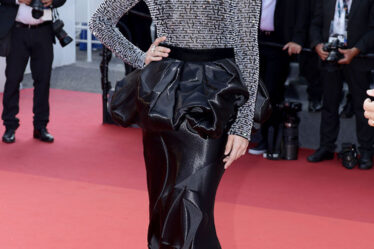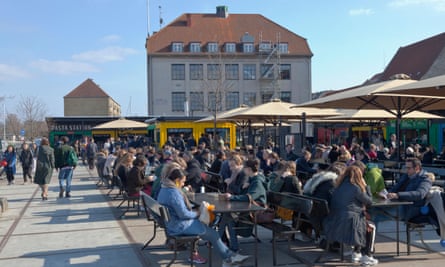
Food
In a town renowned for its bakeries, airy Hart’s Bageri on the islet neighbourhood of Holmen is a favourite. It serves amazing pastries and cakes, like the apple-bottom spandauer and cardamom croissants, and bakes perhaps the best sourdough bread in Copenhagen. It’s part of a foodie corner facing the colourful harbour of Nyhavn that includes outdoor food market Broens Gadekøkken and Popl, a burger joint run by veterans of Noma (the five-time winner of the world’s best restaurant) that serves organic beef, veggie and vegan varieties.
I like to meet friends here, buy a pastry at Hart’s and then take a harbour walk from the Opera to Paper Island. Copenhagen will be Unesco’s world capital of architecture in 2023, and it only takes a short stroll in this area to see why: modernist spaceship-style buildings sit next to reworked silos and thoughtfully designed community spaces.
Inspiration
The National Museum of Denmark is a fantastic old building, a former palace, where visitors can see Viking treasures such as the Tissø ring, preserved bodies found in bogs and exhibitions that invite you into new interpretations of history – I always leave with a lust for gold!
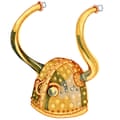
A recent exhibition included a multimedia presentation that took visitors on a Viking raid. It was so good I almost forgot that, as an English person, my ancestors were on the receiving end of it all. It’s also great fun for kids; its Children’s Museum has role-play and dressing-up activities.
Neighbourhood
All the city’s harbourside areas are developing fast, with groundbreaking architecture and creative spaces popping up. Islands Brygge, a central neighbourhood on the harbour, has become a buzzy place to be, and its Bjarke Ingels-designed floating swimming pool was full of swimmers and sunbathers all summer long. And with the arrival of music/bar space Vipp Garage, alongside Italian restaurant Il Buco and a hipster coffee bar Sneezing Fruits, it’s developing an edgy, artistic personality that I love. It’s also the start point for the solar powered Go Boats that can be rented for an easy self-drive boat tour of the city.
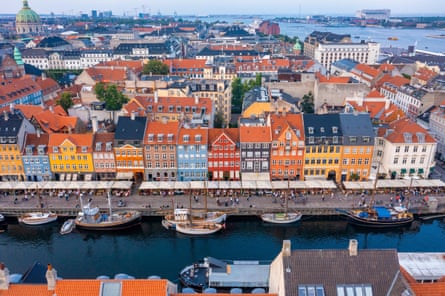
Green space
Copenhagen was planned in such a way that residents are rarely more than 300 metres from a green space (defined as a park, stretch of water or beach), and it’s one of the reasons that the city scores highly for liveability.
The Sluseholmen area, where I live, is in the south of the city and lives up to that promise, being right on the clean harbour. It’s great for paddleboarding and swimming, with three designated swimming zones, and you can reach it from the centre by the green energy-powered harbour bus. I recommend a tuna sandwich and a plate of padron peppers at the tiny silver Cafe Slusen on the edge of Amager Fælled, an area of woods, lakes and marshes.
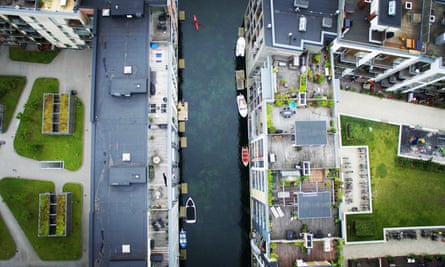
Nightlife
Copenhagen’s nightlife is more about meeting up and having drinks with friends than all-night clubbing. There is a thriving cocktail bar and natural wine bar scene as a result. For natural wine, Rosforth & Rosforth runs a beloved pop-up bar under Knippelsbro bridge and are very highly regarded. Ved Stranden 10 (named after its address) has great sommeliers and is a good bet for a classy glass of wine, and nearby The Jane, on Gråbrødretorv square, is a Mad Men-styled cocktail bar that turns into a club later in the evening, as bookcases are rolled back to expose a hidden dancefloor.
Stay
Copenhagen’s hotels are design-led and gorgeous, but can be pricey. The boutique Hotel Coco on Vesterbrogade (doubles from £153 room-only) puts you close to the heart of the action, with the lovely French-styled Værnedamsvej street nearby (hit Granola for breakfast) and cocktail bars Duck and Cover and Lidkœb a stroll away.
Laura Hall is a travel writer living in Copenhagen

